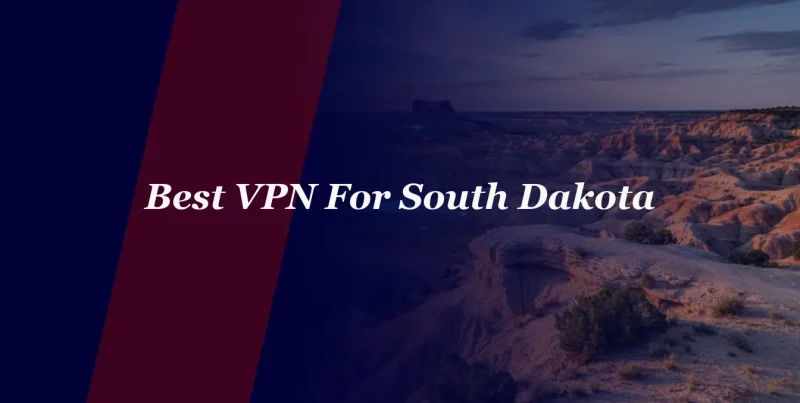The Antivirus vs VPN comparison in this guide helps you understand which one is better and whether you can use both simultaneously.
It’s an adage of every tech-savvy person that you must always keep your device protected with an anti-virus. The digital world is sprawling with threats that can potentially reach your device if you don’t have appropriate measures in place. An antivirus is your virtual fortress wall that prevents any malicious piece of code from infecting your system. It checks and verifies the code and the digital signature to greenlit for storage and installation.
The fundamental purpose – at the very core – is to protect the user. So it’s natural that users may confuse a VPN with an Antivirus program because both come under categories of security. But both of them are very different from each other.
Antivirus Explained
An antivirus is a program that combats viruses. The term virus is self-explanatory; like the biological agent that’s part of our nature, a digital virus is one that affects the functionality of digital logic devices, such as computers.
A virus has only one intent: to cause harm. Though the term virus has become a broader term that’s used to define other types of malicious code, such as Adware, Spyware, Malware, Rootkit virus, Trojan virus, and more.
Once it has infected your system, the virus will try to spread to other computers on the network or drives attached to the computer; that’s how you get infected external drives. Depending on the type of code, the damage can be severe, such that you may lose your data or even your storage device.
An antivirus is built to root out these threats and disinfect the system. The program stays vigilant against threats, it immediately notifies you when it catches a potentially harmful program. The next step for the antivirus is to quarantine the program and delete it upon user confirmation.
What Makes Antivirus and VPN Different?
A VPN enables you to secure your internet traffic by moving it through a remote server. Instead of relying on the ISP and its DNS server to fulfill requests, you grant the VPN server that responsibility.
It encapsulates data that makes it difficult for third parties, such as the ISP, from seeing what you do on the internet. On top of that, VPN uses encryption to protect data – thus, making internet traffic even more secure.
Antivirus programs can only protect what happens within the boundaries of your system. Taking the example of a fortress, it prevents outsiders from invading. A VPN, on the other hand, establishes a secure link over the network. The secure link enables the transmission of data over the internet using the VPN service as the remote server.
In short, an antivirus cannot do the job of a VPN, and vice-versa.
Should I Use VPN with Antivirus
An antivirus is an absolute must for your computer; it’s not worth risking valuable data. Similarly, you should use VPN when transferring sensitive data online. And must not – absolutely never – use a public Wi-Fi hotspot to make transactions online without a VPN. These networks are very unsecure and leave you vulnerable to data theft by another user on the same network.
Encryption is one of the key pillars of VPN. It converts data into ciphertext which can only be decrypted using a special key. Simply put, your data will appear unreadable to anyone who is not supposed to be looking at it.
Furthermore, VPN’s fundamental ability to change IP addresses makes it a tool that lets you surf the internet without any restriction. Can’t access a blocked website? Use a VPN. Can’t see the complete library on Netflix? It just became possible with a VPN.
How Does Antivirus Make Torrenting Safer?
Torrents are a common way to download large files; it’s not necessarily a place to download copyrighted content although it’s notorious as such. The problem is that public torrent websites are largely unsafe because anyone can sign-up and start uploading files that other users can then leech. Antivirus can scan files and detect if there’s anything harmful that you may have unknowingly downloaded.
One tip you should carry with you is that never trust keygen and patch programs that promise to activate a paid software – you are likely to run into a harmful program.
Deciding Between a VPN Service
Deciding between VPN providers can be a daunting experience, especially if you don’t know what to look for. The first thing you must look for is what’s known as the “no logs” policy.
The policy describes the VPN service’s commitment that it will never track or record user activity. The VPN provider’s operating country – its jurisdiction – also plays a key factor in its ability to uphold that commitment. Our list of the top VPN services, which you can view here, saves you the trouble of scouring the internet for the best one. Pick the one that you think fits your needs and offers the best value.
Does a VPN protect you from viruses?
Simply said, a VPN cannot inherently protect you from viruses ranging from sniffers to other kinds that latch on to your device, but it does secure your connection and make it safer. With that said, no matter how many perks a VPN offers, some of which are far greater than an Antivirus, you could link the two up for added security. There are a few providers that offer both a VPN and anti-virus service, like:
- Surfshark and its new antivirus addon
- Avast Ultimate
- Norton Secure VPN + Norton Security
- Avira Prime
- Webroot WiFi Security + Internet Security
Other than overlapping a VPN with an Antivirus, there are sometimes VPNs that offer features that are much like antivirus software. For example, NordVPN offers its CyberSec feature that blocks ads and aids in detecting malware-hosting sites and more. These features at times mimic the features of the antivirus, but that shouldn’t be an issue when trying to pair up the two.
Conclusion
It’s easy to see antivirus and VPN as a cost that you didn’t expect, but when it comes to protecting data, the benefits outweigh the price of admission. Imagine a scenario when your most valuable data is locked behind ransomware and the attacker demands a huge sum to unlock it. Is it really worth the risk? That’s the question I’ll leave you with.







